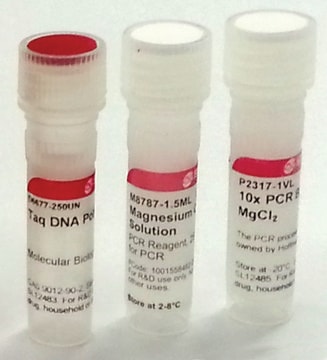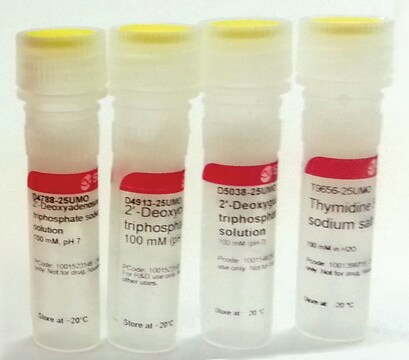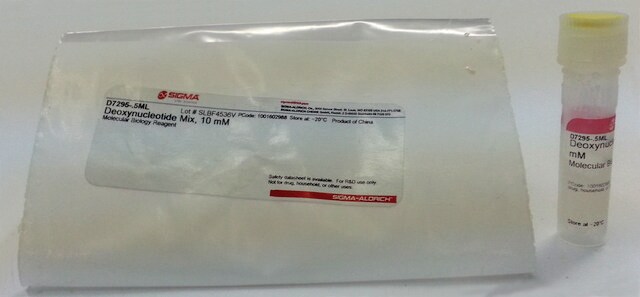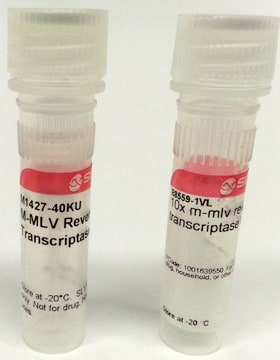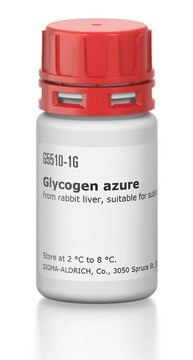M8787
Magnesium chloride solution
PCR Reagent, 25 mM MgCI2 solution for PCR
Synonym(s):
PCR optimization
About This Item
Recommended Products
grade
PCR Reagent
Quality Level
200
300
form
liquid
packaging
vial of 1.5 mL
concentration
25 mM±1 mM
technique(s)
PCR: suitable
color
colorless
application(s)
agriculture
diagnostic assay manufacturing
foreign activity
DNase, RNase, none detected
storage temp.
2-8°C
SMILES string
Cl[Mg]Cl
InChI
1S/2ClH.Mg/h2*1H;/q;;+2/p-2
InChI key
TWRXJAOTZQYOKJ-UHFFFAOYSA-L
Looking for similar products? Visit Product Comparison Guide
General description
Application
- amplification mixture for polymerase chain reaction (PCR)
- amplification mixture in an inter simple sequence repeats (ISSR)-PCR
- reaction buffer in 16S-23S rRNA gene internal transcribed spacer (ITS) PCR amplification and restriction analysis (ITS-PCR-RFLP)
- PCR master mix for quantitative reverse transcription-polymerase chain reaction (qRT PCR) to amplify reversely transcribed cDNA
- reaction mix for RT-PCR to assess the gene expression
Suitability
Storage Class
12 - Non Combustible Liquids
wgk_germany
nwg
flash_point_f
Not applicable
flash_point_c
Not applicable
ppe
Eyeshields, Gloves, multi-purpose combination respirator cartridge (US)
Choose from one of the most recent versions:
Already Own This Product?
Find documentation for the products that you have recently purchased in the Document Library.
Customers Also Viewed
Articles
Method outlines use of a hot start Taq for multiplex qPCR and provides guidance on how to optimize dNTPs, primer, probes and MgCL2 concentrations. By optimizing these parameters, the user can improve assay sensitivity and linear range of detection.
The assessment of DNA quality is a crucial first step in acquiring meaningful data from formalin-fixed paraffin-embedded (FFPE) tissues, and other sources of damaged DNA. Using intact genomic DNA is key for successful analysis of chromosomal aberrations (e.g. SNP analysis, LOH, aCGH, etc.).
Introduction of small interfering RNAs (siRNAs) into cultured cells provides a fast and efficient means of knocking down gene expression and has allowed siRNAs to quickly become a ubiquitous tool in molecular biology.
Protocols
Our SYBR Green qPCR Protocol is a method designed to detect accurate quantification of gene expression and RT-PCR reactions
Creating Transgenic Mice using CRISPR-Cas9 Genome Editing
Our team of scientists has experience in all areas of research including Life Science, Material Science, Chemical Synthesis, Chromatography, Analytical and many others.
Contact Technical Service
